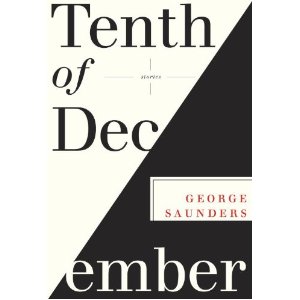Last week, we discussed how important exploring the theme is when writing for a themed anthology. This week, we are going deeper, finding ways to show a story and keep it within the word count limits.
 Skill as a writer comes with practice. As we continue to work with our writing groups, we become technically better at the mechanics (grammar and punctuation).
Skill as a writer comes with practice. As we continue to work with our writing groups, we become technically better at the mechanics (grammar and punctuation).
Voice is how we bend the rules and is our authorly fingerprint. It will always be distinctly ours, because we all speak differently. However, many of the ways we express ourselves when speaking don’t translate well to writing within a tight framework.
Writing to a strict word count limit forces an author to pare away all that is unnecessary. To do that in 4,000 words or fewer, we choose words that have power.
We have talked about this before: active prose is Noun-Verb centric. If you are writing only for yourself, write any way you choose. But if you are hoping to sell books, it’s wise to keep in mind that today’s reader has high expectations and a great many other books to choose from.
We who write genre fiction (Sci-fi, Fantasy, Mystery, Thriller, Romance) must use words that are dynamic and convey a feeling of action. In English, words that begin with hard consonants sound tougher and more powerful.
Say you have been invited to submit your work to an anthology. You have been given the theme which plays well to an idea you’ve had for a short story, and you are ready to write it.
 But what is the mood you want to convey with your prose? Where you place the words in the sentence dramatically affects the mood, which either highlights or plays down the theme.
But what is the mood you want to convey with your prose? Where you place the words in the sentence dramatically affects the mood, which either highlights or plays down the theme.
- Placement of verbs in the sentence
- Moving the verbs to the beginning of the sentence makes it stronger.
- Nouns followed by verbs feel active.
Let’s look at four sentences, two of which are actively phrased, and two are passive. All describe the same self-destructive person, and none are “wrong.” Each conveys a different mood because of how they are expressed.
- She runs toward danger, never away.
- She never runs away from danger.
- Danger approaches, and she runs to meet it.
- If it’s dangerous, she runs to it.
I like it when an author makes good use of contrast when describing the difference(s) between two or more things in one sentence. Simplicity has impact. When looking for words with visceral and emotional power, consonants are your friend.
Sunlight glared over the ice, a cold fire in the sky that cast no warmth but burned the eyes.
Verbs are power words. If you choose forceful words, you won’t have to resort to a great deal of description. Weak word choices separate the reader from the experience, dulling the emotional impact of what could be an intense scene.
How we add depth to our prose without weakening it takes time and involves thought in the revision process. Consider word order, think about where you place your verbs, and use ordinary words that most people know and don’t have to look up in a dictionary.
We who write fiction create pictures without paint. We must learn to convey an inner landscape and imaginary world by painting a picture of the setting with a few deliberately chosen words. We also must show the atmosphere, the emotions, and the action.
Readers want us to use words that are “primary colors,” the words most people with an average education understand without having to go to a dictionary.
An example of this is “Escape from Spiderhead,” a short science fiction story written by George Saunders and published in his 2013 anthology collection Tenth of December. It was first published in the New Yorker on Dec. 13, 2010.
 This is a riveting story, one that challenges the reader to consider the ideas of free will and determinism. It also points out how easy it is for a society to strip certain individuals of their humanity, and how we justify it to ourselves.
This is a riveting story, one that challenges the reader to consider the ideas of free will and determinism. It also points out how easy it is for a society to strip certain individuals of their humanity, and how we justify it to ourselves.
Escape from Spiderhead is gut-wrenching and memorable because the words Saunders used to paint it with and the way he used them have power.
Emotional impact is created when an author combines common, everyday words in uncommon ways. I love finding an author whose words speak to me. Their stories surprise me, and the ideas they transmit fundamentally alters my perceptions of the world around me.








Love this one, Connie! It’s a big help! Thanks! 🙂
LikeLiked by 1 person
Aw! Thank you, my friend! 😀
LikeLiked by 1 person
Reblogged this on Chris The Story Reading Ape's Blog.
LikeLiked by 1 person
❤ Thank you for the reblog, Chris! 😀 ❤ 😀
LikeLiked by 1 person
Part 2 will be reblogged tomorrow, Connie 🤗❤️🤗
LikeLiked by 1 person
I saved this blog to re-read while I’m editing a short story. Thanks for writing this!
LikeLiked by 1 person
You’re welcome, Johanna. I can’t wait to see what you come up with!
LikeLike